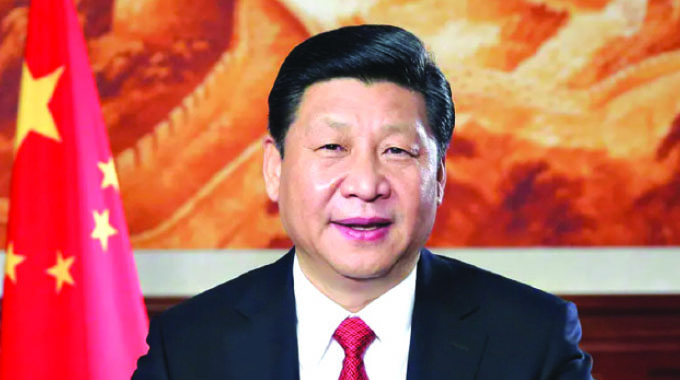Determining Africa’s position in new ‘scramble’

Gibson Nyikadzino Correspondent
Addressing party supporters in Beitbridge last week, President Mnangagwa mentioned a huge point that arrested the attention of this writer.
He told supporters that Matabeleland South and Mashonaland Central provinces should, like other provinces, maintain their resolve as they contribute significantly to the electoral victories of the party.
Those that read the political dynamics of Zimbabwe will concur that the geography of a country or the world has a direct link to local and international politics.
Africa and Eurasia are the core of the world politically because the political history of the world comes from these two regions.
When one controls Eurasia, they control the largest landmass that has links to Western and Eastern Europe, Asia and the Middle-East.
Eurasia has a window that peeps into other parts of Africa.
To provide context, the Eurasia region hosts about 93 nations that have a collective population of 5,5 billion people.
It is a desirable territory for geopolitics. This informs the US’s balance of power in Europe, either east or west.
Even today, because the USA’s desire to agitate for global military control in the Eurasia, it wants to control even former Union of Soviet Socialist Republic territories because that is where the majority of its rivals are located in those territories.
The link between politics and geography on a global scale is what geopolitics is all about.
Geopolitics is important because geography is a permanent feature in this world and is an important political variable.
There is a link between politics and geography.
Who needs to control what geographical space for what purpose is an important aspect in international politics.
The link between geography and politics should not be read in isolation, but key in explaining unfolding developments in international politics at a global level.
Antony Blinken, the US Secretary of State, was in Nigeria last week.
He mentioned that his country was now ready to revamp the relationship it had “neglected” with Africa. His trip came at a very worrying time for the US when it is trying to host a US-Africa Democracy Summit next month.
It also came at a time a research report authored by America’s global management and consulting firm McKinsey & Company confirmed that China has overtaken the US to become the world’s richest nation.
According to the report, global wealth has tripled over the last two decades from US$156 trillion in 2000 to US$514 trillion in 2020.
China now accounts for almost one-third of the rising global wealth, surging from $7 trillion to $120 trillion as of last year while the USA’s wealth is currently at almost $90 trillion dollars.
As the US prepares a Democracy Summit with Africa, the global realisation that Africa is geopolitically useful to the growth of economies outside its borders has birthed more courtships like the EU-Africa Summit; Japan-Africa Summit; Africa-Turkey Cooperation; and the Indo-Africa Summit, among others.
Africa has an abundant of resources that are able to sustain two thirds of the world’s population. Regrettably, the global political economy order has denied the continent the opportunity to own value chains of production.
The structure of the international political economy disadvantages those with resources and enables those without.
In Nigeria, Blinken tried to besmirch and slander the presence of China in Africa suggesting that Africa should favour his country as it “does not leave you in unsustainable debt” compared to China.
Nigeria’s Foreign Minister was clear to underline that “in many ways China provided the best deal” and that his country was looking for good deals and not to talk about that country or the other.
Americans do not provide good deals to Africans and other nations of the south.
The attempt to slander China by the US comes a week before the Forum on China-Africa Cooperation (FOCAC) opens in Senegal next week.
Between the two economic giants, the USA and China, the latter’s relationship with Africa has been healthy, dominated by mutual respect since 2000 and followed by its Road and Belt Initiative (RBI) that highlights economic development based on mutual cooperation.
To counter China’s RBI concept, the US and allies from the Group of Seven (G7) countries this year in June started their Build Back Better World (B3W) initiative.
The B3W initiative was recently implemented and executed by the G7 not to help Africa, but as a geopolitical thrust to challenge the China-Africa Cooperation platform.
This comes upon the realisation that the basis in which the US used as a traditional relationship management tool is an old order that does not work in this new, multi-polar age.
The US has systematically used hard power politics and intimidation to dominate the world.
Where the US has used force, China has used economic cooperation and cultural exchange programmes meant to understand the values of each other.
The use of force by the US for positioning its geopolitical interests has been evident since it set over 70 military bases across the world to encircle and elbow its perceived rivals.
It has done the same through its NATO alliance and advancing geopolitical interests in Taiwan.
However, China has positioned itself and stood up to the “hegemony” of the US by doing the same by also setting up a military base in Djibouti where the US has its AfriCom base.
Similarly, China’s leader President Xi Jinping last week told his US counterpart, Joe Biden, that its advances towards Taiwan are indicative of “playing with fire.”
On the other hand, the US-China trade war that happened during the presidency of Donald Trump was not a coincidence.
The Trump administration was trying to slow China’s economic might and influence.
As a matter of foreign policy continuity, the US’ indication to boycott winter Olympics to be held in China next year is President Biden’s way to catalyse an inevitable developing situation happening, the world is just not sure when it will be fully blown.
The US is facing a double tragedy, that is a rising China and a determined Russia under President Vladimir Putin who is restoring the country to its Soviet glory while using that glory for the present and the future.
To a notable extent, the US is a power on the decline. The capabilities of China to develop are plenty and many things are pointing to a trajectory that one day China will emerge as a global leader.
This is a new and very complicated way to deal with transitions and Africa has to read between the lines.
Where Africa’s history was disrupted by nations of the West, it is equally dangerous to have its future disrupted again, by anyone for that matter.
It is time to hold fort against aggression and interference that comes in the name of geopolitical strategy. The continent remains a huge landmass whose access is needed by all states, the continent should cooperate with those that respect its terms set up by our able representative leadership.
It is true, geopolitics is about great power politics, but Africa ought to shape the discourse and narrative regards its position and contributions on the global political, economic and social order.
One way to ascertain that position is the need for Africa to undercut and checkmate the influence of big states by entering cooperation alliances that are not lopsided.
Since 2000, deals offered by the Chinese over those by the US for Africa have been more favourable. Alliances with China are also driven by the humanist approach.
This is evidenced by its great desire to help Africa eradicate the curse of Covid-19 on the continent compared with the US’ hoarding of vaccines and nationalising their production.
Everything is discernible on what Africa should do, which is to advocate for the restructuring of the international economy and political order.










Comments